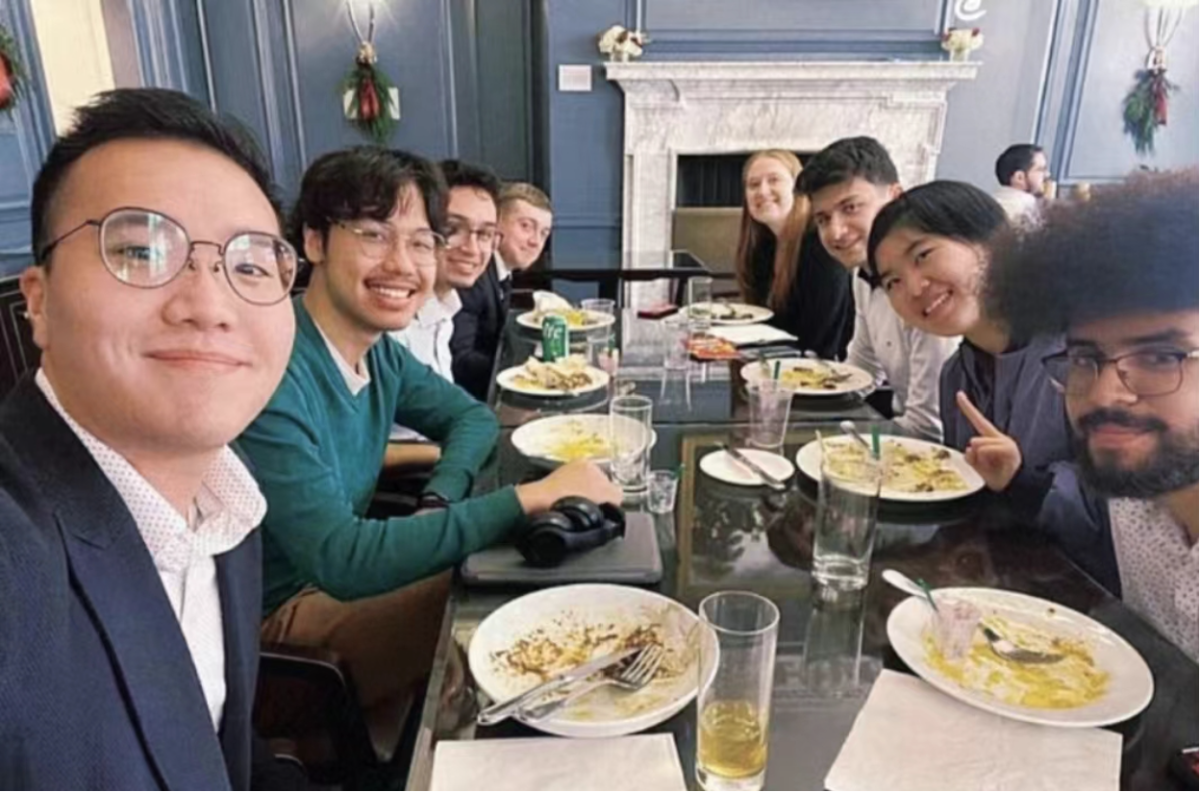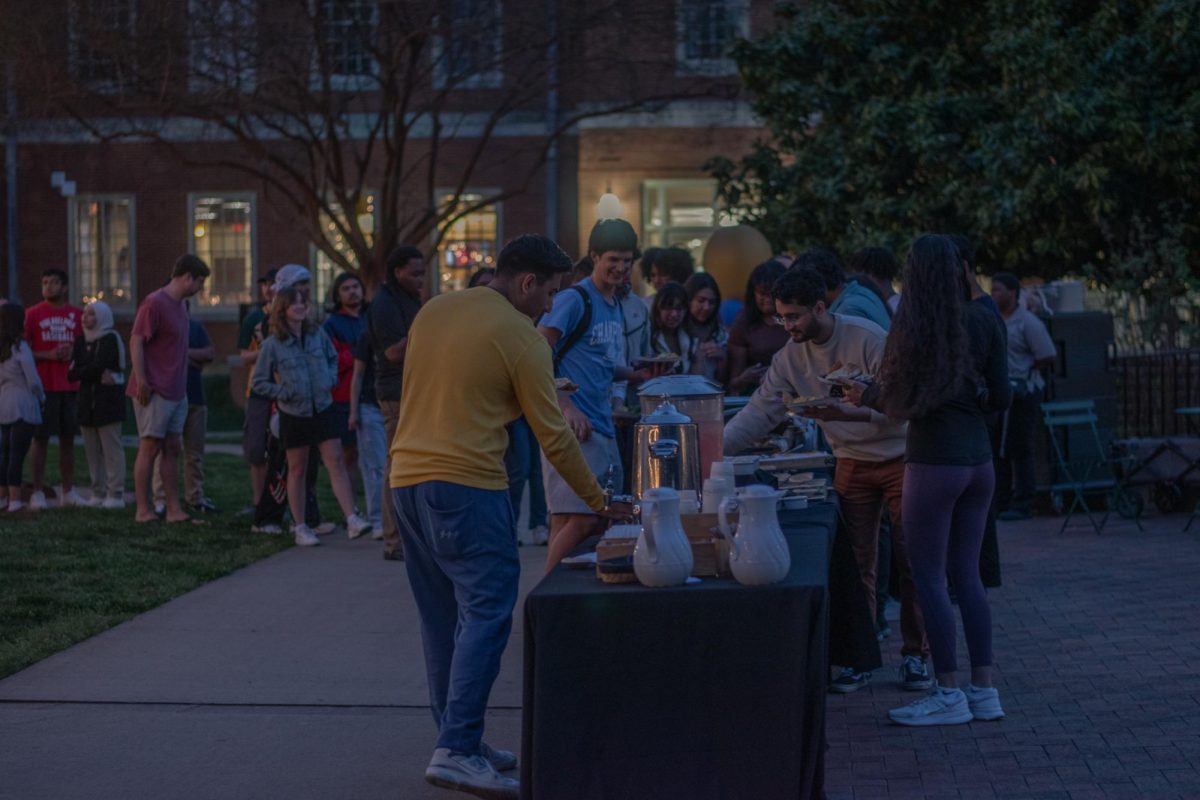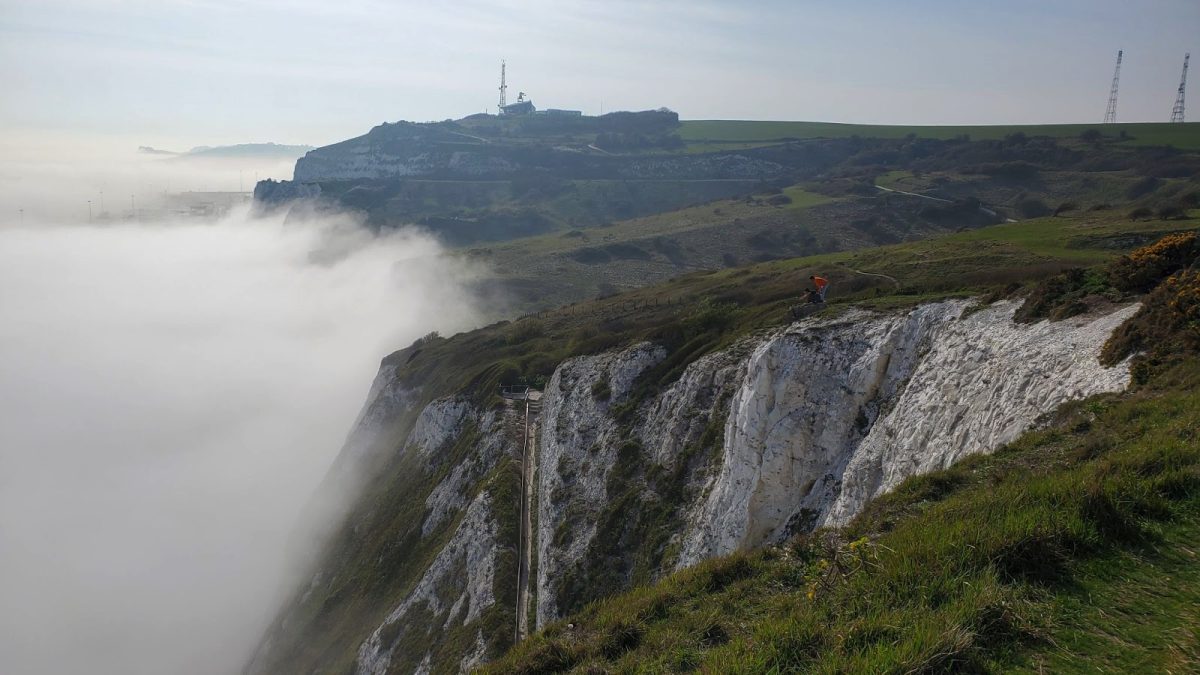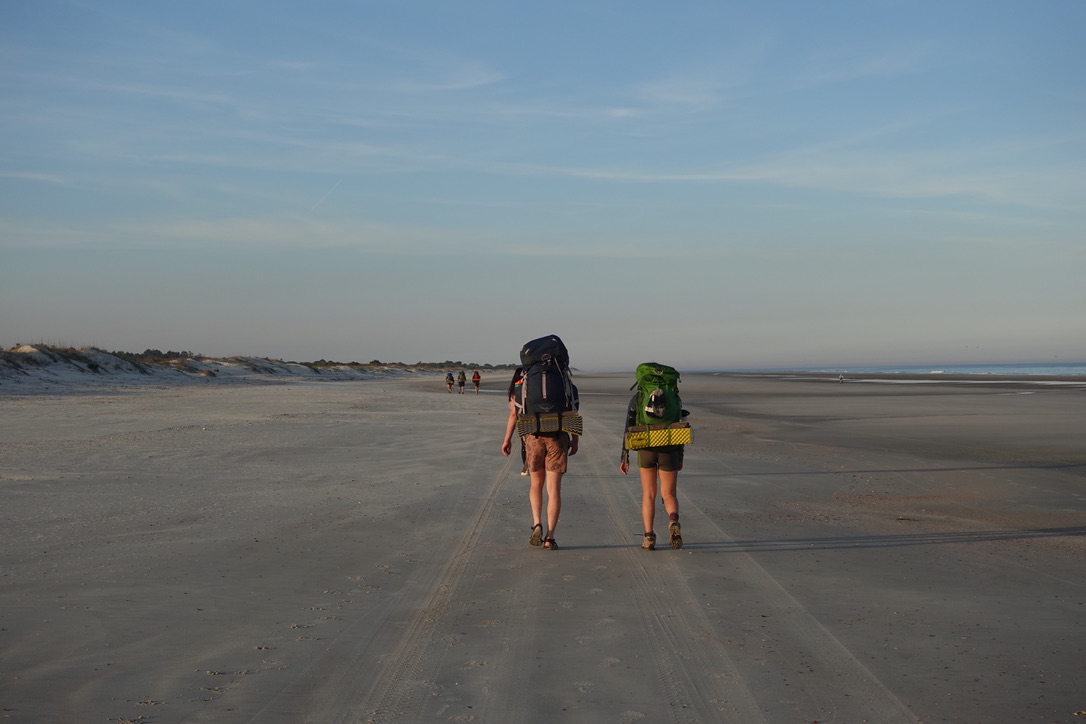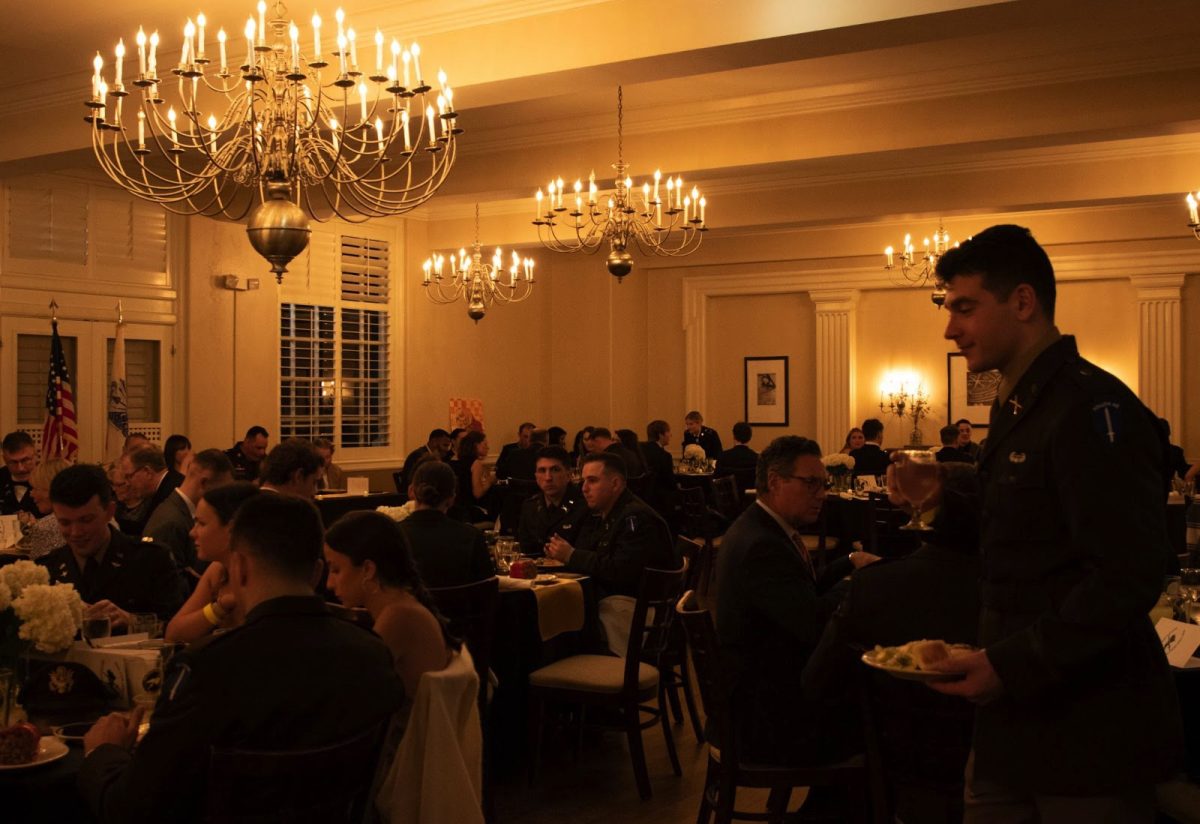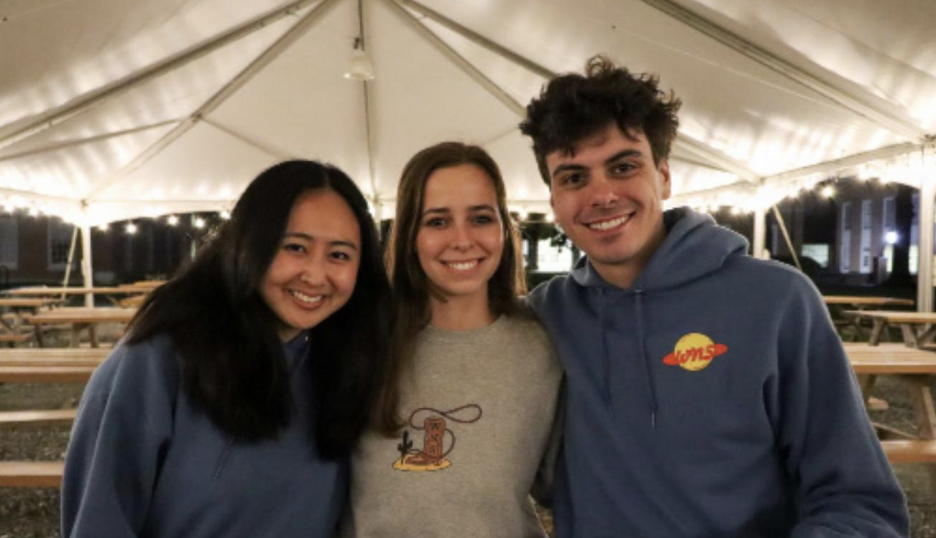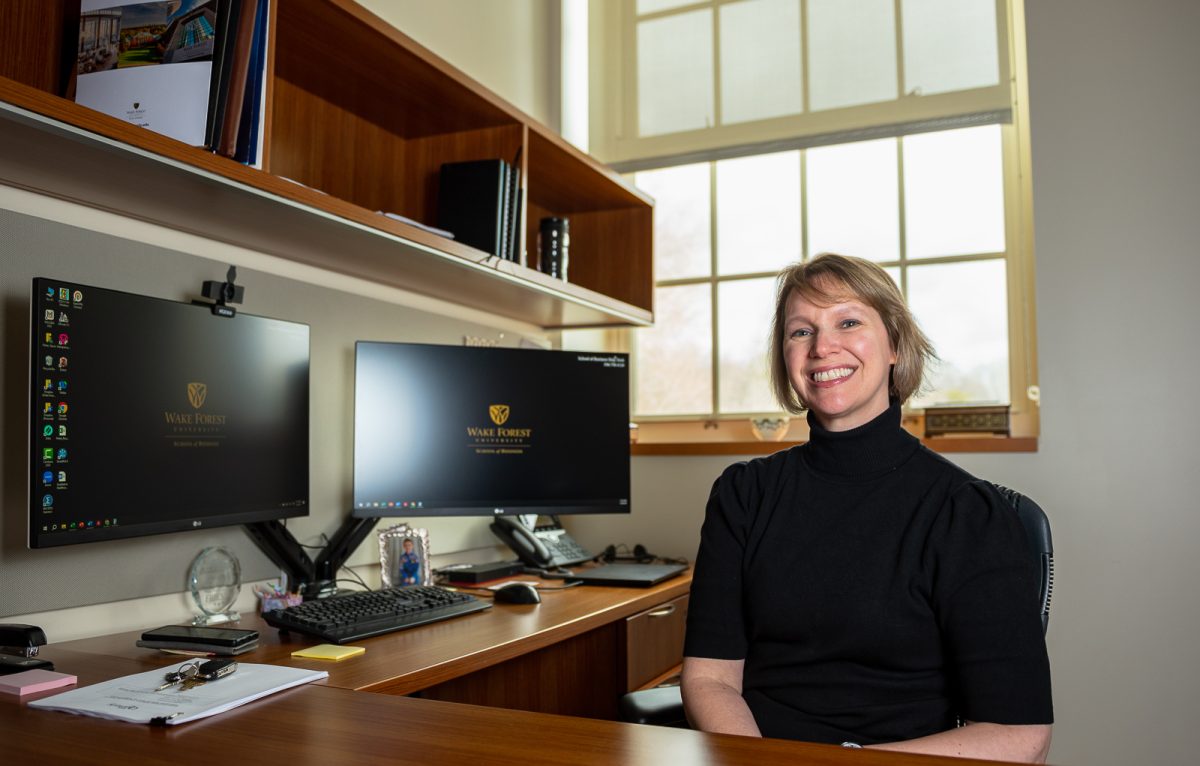Just half an hour before concluding my second day as an intern at a lobbying firm in Washington D.C., the HR manager walked up to my desk, asking for a short chat. I wasn’t entirely surprised when she started with, “We’re happy to have you here … but we cannot proceed with your internship.”
From the moment I received the offer in the summer, I sensed that it might be too good to be true for a Chinese student to work at an American government relations firm.
This occurrence happened last fall semester when I participated in a study away program often overlooked in the sea of typical “study abroad” experiences: Wake Washington. This wasn’t your run-of-the-mill study abroad journey; unlike the usual focus on studying while traveling, this program is unique for its strong emphasis on academic rigor and professional immersion throughout the whole semester.
A group of 14 students, myself included, dedicated themselves to bi-weekly classes, full-time internships four days a week and engaging speaker sessions or field trips on Fridays — designed for students wanting hands-on involvement in Washington’s realms of politics, policy and nonprofit organizations.
If you’re aiming to launch your career in this nation, whether in politics, the White House or the policy arena, Wake Washington is the perfect destination. Throughout the experience, Program Director Jennifer Richwine acts as the gatekeeper, unlocking doors to prestigious internship opportunities within federal branches and competitive firms. She brings in past Wake Washington and Wake Forest alumni that hold positions in government or other esteemed entities, such as the deputy assistant secretary of state, director for the Office of English Acquisition at the Department of Education and former judges who served in President Trump’s cabinet, among others.
But while applying to Wake Washington, I discovered resources weren’t quite suitable for students like me. As one of the first international students in the program, I realized it primarily caters to American citizens as a talent pipeline.
Coming from China, the complexities between our nations made the pulse of Washington’s political implications even stronger. That’s why the aforementioned scenario unfolded: the firm had a policy against hiring foreign nationals due to their federal government work. Despite no citizenship requirements in the job posting and extensive paperwork, it was clear my experience would differ more than my American peers.
Filtering employers for citizenship left few options in my field, especially in the capital. The remaining options posed challenges: smaller startups focus exclusively on domestic issues and have a lack experience with foreign nationals, whereas larger organizations, despite championing inclusivity efforts, have a much more competitive hiring processes.
Taking a stroll toward Dupont Circle, home of the Wake Washington center, I started to question my decision. Here I was, without a job, contemplating whether this leap to a place where everyone’s buzzing about government shutdowns affecting internships was worth it for an outsider like me. I was, and still am, grappling with the major life adjustments of moving to a new country, including figuring out friendships and finding my community.
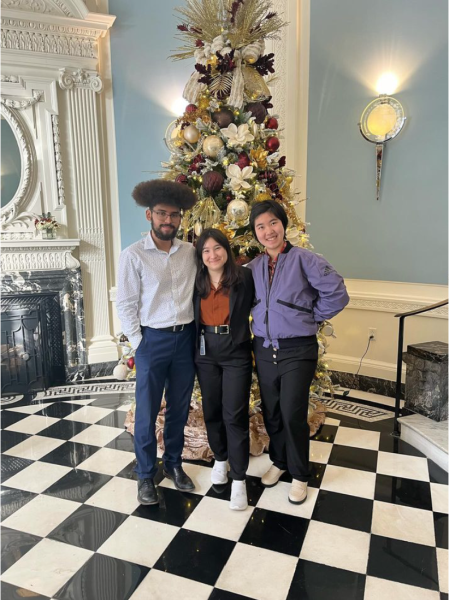
I’d found my path within journalism — idealistic compared to fellow international students who opted for finance, business or STEM fields for a better payoff on their education investment. My motivation to study in Washington D.C stemmed from the hub of prominent media outlets such as the Washington Post, National Public Radio (NPR) and Vox Media. However, despite my interest, the political and cultural obstacles I confronted revealed the exclusive nature of such experiences.
So, you may be wondering if I regret my study abroad experience?
If I could turn back time and have a chat with my September self, the one who frequently wandered at the tail end of our cohort group after our evening class, I’d emphatically tell her, “Yes, Wake Washington is worthwhile.” And here’s why.
Washington is a big city. It is so big that through our coordinator, I was connected to another vacant position that only recently opened at American Enterprise Institute. There, I met incredible colleagues who have roots from all over: Puerto Rico, Colombia and even Kyrgyzstan. We had a blast working together on a global ship tracking project and became fast friends. We’d go on food adventures, exploring local eats from our home countries. I introduced them to an authentic Sichuan restaurant, and they showed me my first red cup drink at a local Washington “party.”
I even got to chat with a Washington Post reporter about CIA cyber warfare and sat down with the first Black woman elected to Congress from Maryland, hearing about her college days when she was a Wake Forest student.
And yet, Washington is also a small town where the influence of Wake Forest is reflected in students attending the program. Wake Washington is not immune to the tension driven by both cultural differences and lived experiences, which admittedly caused me to break down in a rush of tears in my apartment when phoning my mother. At the same time, it is also a small town in the sense that I can run into another Chinese international student curious about career opportunities in the thinktank world during networking, all while enjoying a conversation in our native language over a scoop of gelato.
At Wake Washington you can find connections with Wake Forest alumni in the policy world, who are willing to walk you through their journey as long as you shout out the magic words, “Go Deacs!”
Most importantly, it is worthwhile because no matter what, I was in Washington — the hub where every important decision is made in this nation. Every Saturday, I could explore the Smithsonian museums for free and listen to my classmates talk about what it feels like to be at the White House when the speaker is ousted — even though I still do not fully grasp what this means.
I appreciated the evening walks with my sociology professor to our apartment every day as she pointed out locations along our way that mark the history of this nation. I found joy in being at a place that lives and breathes politics, where people genuinely believe that what they do makes a difference.
My study abroad experience helped me realize that I am not alone in this journey as an international student. I met other Chinese international students from NYU who confided their feelings of isolation and loneliness in me, as they navigated their first year in the United States. My Kyrgyzstan colleague shared my struggle of finding a public policy-related job without citizenship status.
Fellow international students, you already tasted this when you left home for better education opportunities, and you are likely more equipped than you realize to seize this chance.
These concerns aren’t often heard in the Wake Forest “bubble,” which might be a quiet haven tucked away for some students but can also be an island in the middle of nowhere for others. In the heart of the capital, I stumbled upon the charm of an immigrant’s adopted homeland.
As one of the early birds among international students at Wake Washington, with another one to arrive this spring, I’m convinced and hopeful that the trend won’t fade.
I am here to inspire all international students keen on politics, public policy, laws or international organizations to give Wake Washington a shot. It is a once-in-a-lifetime chance to mingle with unique people and witness history firsthand. Sure, it is the toughest study-away program at Wake Forest — described as a crash course in post-grad life by one of my friends — as it thrusts you into the adulting world. But early exposure benefits social science students like me, who are exploring specific issues.
Breaking into policymaker circles and managing a tight budget may be tough. Still, you’ll witness textbook lessons coming to life in real time. This mirrors the reality most of us will face leaving Wake Forest.
Fellow international students, you already tasted this when you left home for better education opportunities, and you are likely more equipped than you realize to seize this chance. This could be a turning point in your life trajectory, influencing your decision to stay or leave the United States. Regardless, I know I am leaving Washington as a tougher, more confident individual than the one who got fired on the second day of work, eagerly diving into another semester of textbooks and assignments with a fresh perspective.


